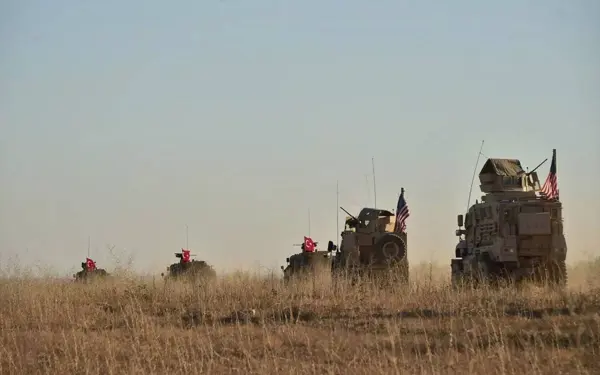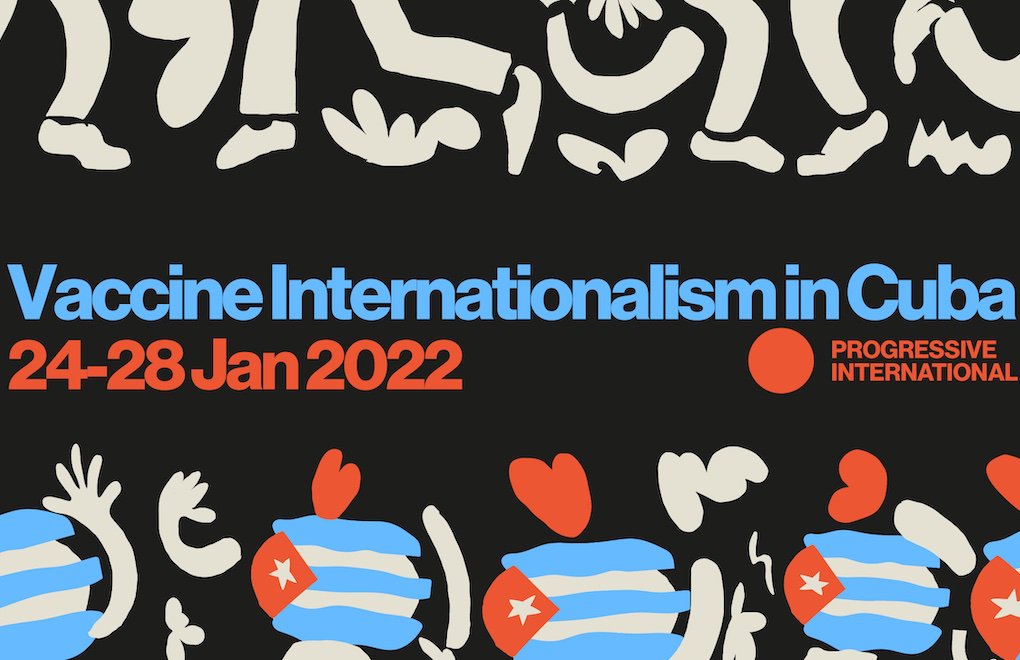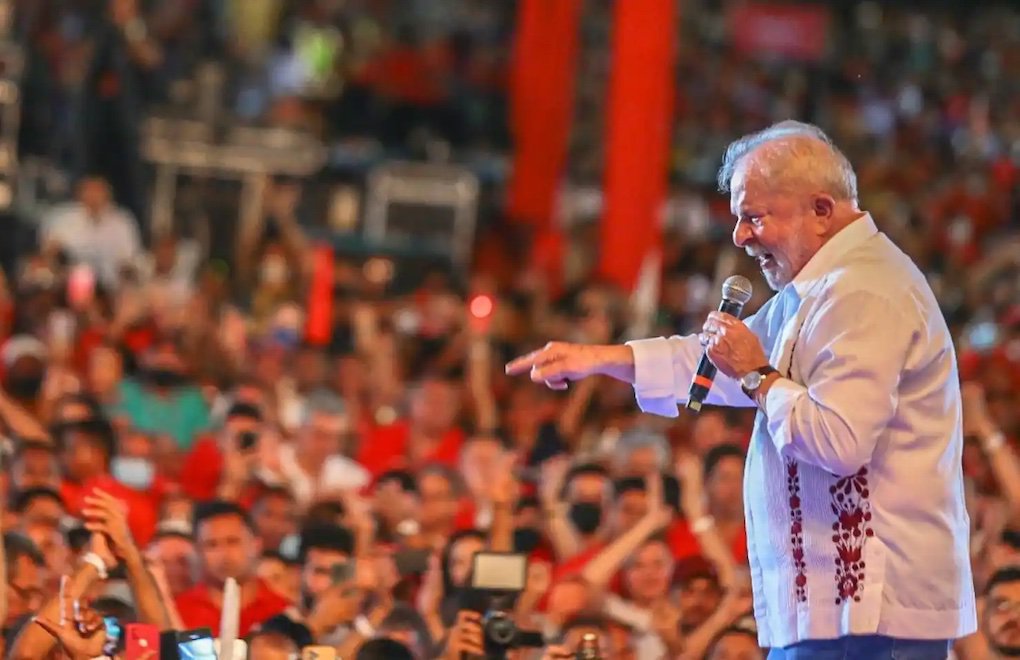Armys role contested at the threshold
Clearing off past disagreements Ecevit and Sezer in a Friday meeting converge on the opinion that the "national security" debate should not be carried on the agenda of the National Security Council meeting scheduled for Aug. 21.
Turkey's military and the political class had past week, come at loggerheads, around the sensitive issue of "national security" following mutual public challenges by deputy Prime Minister Mesut Yilmaz and the Turkish Chief of Staff.
"A dishonorable approach," a written statement by the Chief Staff's Secretary General publicly responded Mesut Yilmaz's challenging address to his ANAP (Motherland Party) National Congress early August that "any progress in the country is barred by concerns for national security...we should relieve ourselves from this syndrome."
Carried to consecutive TV talk shows throughout that week, Yilmaz justifies his urge with military's persistent opposition against implementation of reforms for broader freedom of expression and association. Turkey's accession to full membership in the European Union is conditioned by these reforms to be accomplished latest this autumn, yet the military opposes them with the justification that "these reforms threaten Turkey's national security," Yilmaz claimed.
"Either Turkey will implement the reforms, in the coming months, in the Constitution and in the Penal Code, as envisaged in the National Programme for Accession to the EU, or we should stop empty talk about integration with Europe and turn our faces to East and adopt the model presented by Saddam Hussein's Iraq," Yilmaz says.
The military, as expected by most analysts, reacted immediately, but this time in an unexpectedly harsh and arrogant tone and implying Yilmaz's own responsibility in "the bankruptcy of the Turkish state", and charged the deputy prime minister with "complaining Turkey to the world in a dishonorable way."
President Sezer, in a Friday public statement refutes Yilmaz claims that "disagreements on the 'national security' concept could not be solved in the National Security Council (MGK)."
"The National Program for Turkey's accession to the EU has been discussed in the previous MGK meeting and no objections have been raised by either Yilmaz or another MGK member," Sezer told. "(Yilmaz's)Claims of irresolvable differences in the MGK is irrelevant."
Prime Minister Ecevit too, is of the opinion that the debate is "untimely and unnecessary. " "I expect that it would not be raised by the military of by Yilmaz in the meeting," Ecevit reportedly told.
Turkish military, empowered for the final say on Turkey's defense and security issues, and practically controlling almost all spheres of Turkey's public life through their majority in the National Security Council (MGK), a constitutional advisory body, maintains an undeclared superiority over civilian governments.
NATO's second biggest and Europe's biggest armed forces with 800 thousand troops, Turkish army plays a unique role compared with any army in Europe. Major pillar of the Turkish Republic, Turkish armed forces are convinced that they are the sole guardians of the "indivisible republic," in the last for decades have intervened in politics for times with the same justification "to save the country from disintegration and preserve the foundations of the republic."
The MGK was introduced in the Turkish constitution after the military rule of the 1960s and their power was extended after the 1980 military takeover. Although the MGK is an "advisory" body, throughout its presence of four decades not a single advise of the body has been neglected by any civilian government.
Headed by the President, the MGK comprises of 5 armed forces commanders and four cabinet ministers.
Yet, the military, in contrast to nationwide support they had gained during the campaign against Islamist Prime Minister Necmettin Erbakan in 1997 is now faced with more public criticism than approval.
On 28 February 1997, Prime Minister Necmettin Erbakan amidst military show off across the country had to undersign an 18 points MGK decision for staunch secularist measures obviously against his own government practices. Erbakan a few months later had also to step down from office.
"Turkish Parliament starting Sep. 17 will legislate for necessary steps to be taken towards Turkey's accession to the EU," Sezer recalled. "Those steps are in line with the expectations of the Turkish public, and the public will should be expressed during the parliamentary debate."
The business community and the trade unions, the mainstream media, the liberal and left-wing analysts however in an unprecedented solidarity, publicly question the military's uncontested monopoly over handling the "national security" issues and criticize the blunt intervention by the Chief of Staff's office in the debate.
"Yimaz is absolutely right," says Oktay Eksi of Turkey's biggest national daily Hurriyet, who is known for his relatively favorable approach for the army's role in Turkish politics. "Unfortunately, Yilmaz's speech reflects a very serious reality."
"The justification of 'national security' is the major stumbling block before rapid reforms for accession in the EU. Freedom for the 'mother tongue' is conceived as a threat against 'national security'...and the 'lawful state' is not fully accomplished due to concerns of 'national security'," Eksi admits.
National trade union confederation DISK (Revolutionary Trade Unions Confederation) Secretary General Murat Tokmak too converges on the opinion that the debate cannot and should not be limited to the military and political elite. "This issue of national security is related to all spheres of social life and the debate should be participated by all," he told IPS.
Tokmak further recalls, recently postponed strikes under the justification of "threat against national security." Turkish Law empowers the governments with indefinitely postponing strikes under such justification and in 2001 in the three industries of glass, paper, and rubber and in the municipalities strikes were indefinitely postponed.
"Most recently, the Turkish language broadcasting by the BBC and German public channel Deustsche Welle are banned by the Turkish State under the justification of 'national security'," Tokmak recalls. "We want to discuss these issues publicly."
The unexpectedly harsh and arrogant tone of the military might also be related to the fact that, not only the extent of the MGK's powers but its presence as such becomes an issue of debate, as the European Union urges for abolishing the body as a whole should Turkey reshape its whole political structure in accordance with the EU's standard -the Copenhagen Criteria.
Prime Minister Bulent Ecevit, the head of the ruling three-party coalition government seems to have been trapped between the army and his partner Yilmaz. Keen on keeping smooth relations with the armed forces and on the stability of the delicate balances in the coalition, Ecevit expresses unhappiness with Yilmaz's "unnecessary intervention," but also conveys his unhappiness with the military's "excessive sharpness."
The "public", as interviewed by the online news portal "bianet" criticizes both the armed forces and Yilmaz, though with an open twist to the public right to discuss any issue and to the accountability of all in power.
"The armed forces should withdraw from politics," says student Ilkay Yemenici from Istanbul. "Turkey is their play garden and they are Turkey's secret rulers."
Erdal Baysal, 26-year-old computer specialist is of the opinion that "Turkey is at cross roads: Either we will take Saddam's path or the EU path. Investing on arms should be stopped. Hungry people don't belong to any nation."
"Yilmaz's intervention aims at exploiting the ongoing economic crisis. The army would not withdraw from politics unless democracy is accomplished," believes lorry driver Serdar Ertun.
Associate Professor Ayse Gul Altinay of Istanbul's Sabancy University, points to the fact that the concept of "national security" has undergone profound changes particularly after the fall of Soviet Union.
"At the post-cold war period human security replaces the concept of national security," Altinay observes. "Further, both threat and security are subjective concepts. In the past century, the security issues for individuals, minorities and women were excluded from the context of the 'national security' concept," she told IPS. "Thus we have to pose the question now: 'Whose security, is national security'?"
"Such concepts and definitions as human security, environmental security and global security, now introduce new intra-national practices such as new developments in international law," she adds. (ENDS)
The long and hot summer ahead

'Shamelessness'

LEFT TIDE IN LATIN AMERICA-III
The new task: 'To contribute the reintegration process, to recover the lessons of the Cuban revolution'

LEFT TIDE IN LATIN AMERICA-II
An International to accompany the continental rise of the Left

LEFT TIDE IN LATIN AMERİCA-I
David Adler: "A new vision that is feminist, ecologist, and pluralist"






